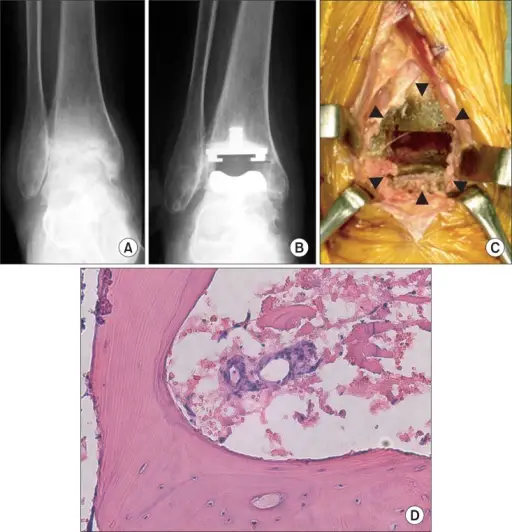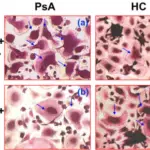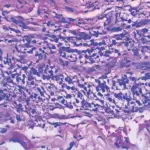Reactive Arthritis is a painful type of inflammatory arthritis in reaction to an infection.
What is the Pathology of Reactive Arthritis?
The pathology of reactive arthritis is:
-Etiology: The cause of reactive arthritis is an infectious organism, most commonly Chlamydia trachomatis.
-Genes involved: HLA-B27.
-Pathogenesis: The sequence of events that lead to reactive arthritis is triggered by an infection.
-Histology: The histology associated with reactive arthritis shows macrophages, Reiter cells, and mixed inflammatory infiltrate.
How does Reactive Arthritis Present?
Patients with reactive arthritis are typically men between ages 20 and 50. Some patients with reactive arthritis carry a gene called HLA-B27. Patients who test positive for HLA-B27 often have a more sudden and severe onset of symptoms. The classic triad of symptoms includes conjunctivitis, non-infectious urethritis, and arthritis.
How is Reactive Arthritis Diagnosed?
Reactive arthritis is diagnosed clinically. If indicated a Chlamydia infection test may be obtained.
How is Reactive Arthritis Treated?
Reactive arthritis is treated with NSAIDS and DMARDS.
What is the Prognosis of Reactive Arthritis?
The prognosis of reactive arthritis is good, and symptoms typically resolve in about four months.



